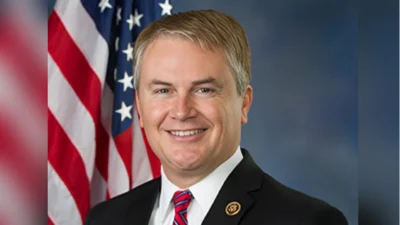We are here today for a hearing about improving competition in Medicare. But I can’t help but wonder what this hearing is really trying to accomplish.
Because if this hearing were about competition, we would be looking carefully at how to drive down prices and get a handle on healthcare costs. This would mean reducing waste and overpayments to industries that are profiting at the expense of the American public.
Unfortunately, the proposals that we will hear this morning won’t control costs. Instead, they are designed to appease the very interests that benefit from waste in the system and contribute to higher healthcare spending.
A hearing like this should make us ask ourselves - are we serious about controlling costs or would we rather just talk about it?
We are going to discuss ways to revise Medicare’s competitive bidding program for durable medical equipment. Specifically, we will hear about a proposal that would put a halt to the existing program, reduce competition, and ultimately increase costs for Medicare and beneficiaries.
This is ironic, because I remember when it was Republicans who were champions of competitive bidding. It was a Republican Congress that first introduced the concept to Medicare as a demonstration project in the Balanced Budget Act of 1997. And it was a Republican Congress that expanded the program in 2003 as part of the prescription drug legislation.
Despite some hiccups along the way - the program has been a measurable success. The first round of competitive bidding saved over $580 million in two years, and HHS projects that over 10 years we will save nearly $43 billion.
Of course we should continue to carefully oversee the implementation of competitive bidding. But proposals, like the one that is before us today, to delay or undermine it signals to the American people that Congress is more concerned with appeasing an industry than with controlling costs.
We are also going to discuss the moratorium on new and expanded physician-owned hospitals.
For many years, specialty hospitals enjoyed a loophole in the Stark Law that allowed doctors to make referrals to hospitals in which they had an ownership interest.
As long as their ownership interest was in the whole hospital, rather than a subdivision of it, physicians could make referrals that otherwise would have been illegal.
The result was a rapid growth in physician-owned hospitals, which skewed the market in troubling ways. Nonpartisan experts at MedPAC, GAO, and the Office of the Inspector General for years expressed serious concerns that these hospitals increase utilization of services and drive up healthcare costs.
Closing this loophole is a cost-saving measure that has always had bipartisan support. We passed temporary moratoriums during Republican-controlled Congresses, and we finally made it permanent as part of the Affordable Care Act. This reform will save the American people $500 million, according to the Congressional Budget Office.
There is simply no good reason to reverse course and undo this progress. It might make the industry happy, but it would bring needless waste back into the healthcare system, and ultimately harm hardworking families.
Getting serious about controlling costs is more important now than ever. The Affordable Care Act continues to expand access to insurance to millions of Americans. When all is said and done, more than 30 million additional people will be brought into the system.
As this is happening, the healthcare system is rapidly changing. Medicine is transforming from a profession into a business. Market power is consolidating into fewer and fewer hands as hospitals merge and swallow up independent practices.
This raises a number of questions about competition, costs, and patient care that we need to answer.
But until we take a careful look at what this trend means, we are sending a message to the American people that appeasing wasteful industry actors is more important than controlling costs.








